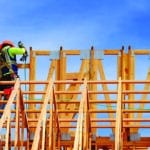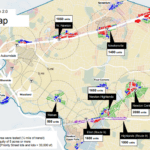Municipalities Will Not Lead on Housing
As passions around the MBTA Communities law rise, it’s time to take a fact-based look at the law, put it in context with what other states are doing and plan accordingly.
As passions around the MBTA Communities law rise, it’s time to take a fact-based look at the law, put it in context with what other states are doing and plan accordingly.
Municipalities throughout New England have long struggled to create opportunities to help alleviate the region’s severe housing crisis, without realizing potential solutions may already be within their control.

In the Cape Cod market, and across Massachusetts, inventory and interest rates are likely to continue to be the biggest challenges encountered by both buyers and sellers.

Gov. Maura Healey is still waiting for the legislature to act on her big housing bill, but she paused Monday to swear in two panels of developers, municipal leaders and advocates Monday, charged with charting more housing production reforms.

Gov. Maura Healey has promised to “go big” on housing as he pushes a multibillion-dollar spending plan. But three big pieces of disused or soon-to-be-disused state property show she’s got more work to do in that regard.
With an assist from the Healey-Driscoll administration, Gateway Cities can pave the way for a new future – one where housing helps drive economic success.
Gov. Maura Healey’s signature piece of housing legislation got its first hearing on Beacon Hill last week, a marathon affair that suggested that many of the main battle lines are being drawn over policy, not the bill’s fiscal impacts.
Wu is essentially asking developers to trust her over the next year as she tries to achieve things previously considered pie-in-the-sky dreams. But it’s hard for some parts of the real estate community to do that.

Wu’s decision not to move forward at this time disappointed housing developers with projects stalled on the drawing boards, but industry circles aren’t losing hope just yet.

2023 ushered in new policy initiatives to tackle the housing crisis. Is 2024 the year we get production back on track, as all levels of government signal they are prioritizing big solutions?
There’s a new threat to affordability that is jolting the rental apartment real estate industry, especially those in market-rate and affordable multifamily housing: insurance premiums.

With housing construction stalled across Boston, the Wu administration is thinking big when it comes to ways to get apartment and condominium projects moving again.

Towns and cities around the Boston metro area have only given developers the green light to build half as many homes as local officials say they need by 2030

A new report from a leading housing advocacy group is urging Massachusetts’ leaders not to rest on their laurels and assume a recent big change in state zoning law will fix the state’s housing problems on its own.

Massachusetts lags behind 40 other states when it comes to increasing its housing stock, a new report said this week, and the pace of new construction last year was just barely ahead of where it was in the depths of the pandemic in 2020.

A major shortage of available rental units has pushed apartment prices to all-time highs in the Greater Boston area. The data suggests this is fundamentally rooted in a supply delivery conundrum.

“From dire to downright catastrophic” just about sums up the steady progression of the housing crisis in Massachusetts over the past year, with new construction falling off a cliff as rents and home prices keep setting records.

Massachusetts has a new housing boss, and in a crisis of unaffordability leading to housing insecurity for many and hurting the state’s competitiveness, his mantra is “more, faster.” But details are still thin.

Adoption of new zoning to comply with the MBTA Communities housing production law would generate a potential 10,000 multifamily units in Newton, most of which would be clustered around transit stops.

Unless you think the law of supply and demand doesn’t have any bearing on the housing market, you know the sudden halt in new construction will make our shortage of homes even worse, driving prices even higher.